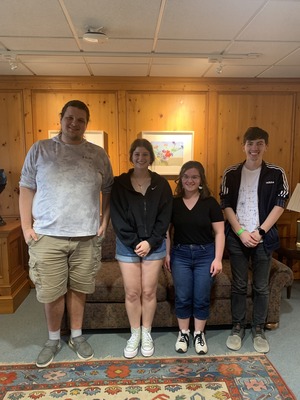Russian and Eastern European Studies
The face of Europe continues to change as myriad challenges face our globalizing world: economic institutions evolve, participation in international organizations fluctuates, terrorism threatens stability. Against this background, the once closed countries of central and eastern Europe strive to find their place on an integrated continent. As these countries enter the European Union and assess and re-assess their relationship to the wider European community, the cultural, social, and economic fabric of one of the world's most influential areas grows more and more influential. At the same time, new questions continually arise concerning eastern Europe's role in the world, her future and her fate. The states of central and eastern Europe will certainly play a significant part in that future. Indeed, recent political events have heightened our awareness of the necessity for understanding how nations, both large and small, are interconnected in a world made small by digital interaction. As the Russians say, Мир тесен!

The Russian and Eastern European Studies program is designed to give students a deeper understanding of the language, Literatures, culture, civilization, history and economics of Russia and other eastern and central European nations. The study of this exciting and often enigmatic area of the world addresses all aspects of its composition, from the earliest appearance of the Slavs in history to recent dynamic cultural, political and economic events. Students take classes in a variety of disciplines pertaining to this diverse region, and are strongly encouraged to take part in one of the study abroad opportunities in Russia or eastern Europe. Students normally go abroad in their junior year for one or two semesters and those who do choose to study in Russia are often quite profocient in the language when they return to campus.
Students develop their interests in eastern Europe for many reasons and will therefore have differing focal points for their studies. Those who choose to major or minor in REES study the Russian language in depth and select from an array of additional courses in departments including History (HIS), Modern Languages, Literatures and Cultures (MLLC), and Political Science (POL). The REES minor is particularly attractive for students majoring in History, International Management and Political Science, among others. Study of Russian can also be of great value for students studying art, biology, physics and mathematics.
Graduates of the REES program go into diverse fields including interpreting/translating, teaching (elementary through university level), information and archival technology, international business, consulting, government work (State Department and intelligence agencies), military careers, service oriented employment (Doctors without Borders, International AIDS project, Greenpeace), and many others. The REES program is indeed a liberal arts major.
Russian and Eastern European Studies Program Statement on Russia's Invasion of Ukraine 7/7/22
The Russian and Eastern European Studies Program at Gustavus Adolphus College condemns the Russian government’s invasion of Ukraine and the senseless suffering, destruction, and damage it has caused so far. As scholars, we strongly reject any justification of conflict based on distorted interpretations of Russian and Ukrainian history. We support all those in Ukraine who are suffering and will continue to suffer because of this invasion. We encourage all our students to learn about the history of the region to better understand this great challenge of our times.
Dobro Slovo National Slavic Honor Society
 Dobro Slovo is the National Slavic Honor Society, which recognizes achievements in the undergraduate study of Russian and Slavic languages, Literatures and cultures. An annual induction ceremony and reception held in the spring celebrates our students' successes.
Dobro Slovo is the National Slavic Honor Society, which recognizes achievements in the undergraduate study of Russian and Slavic languages, Literatures and cultures. An annual induction ceremony and reception held in the spring celebrates our students' successes.